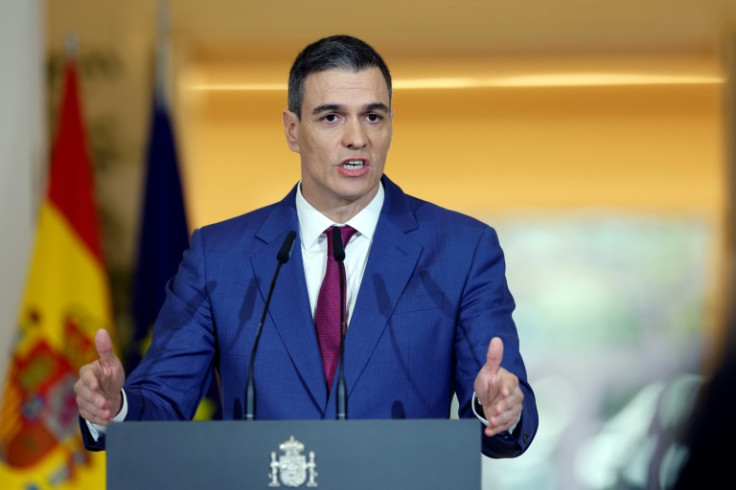
Spanish Prime Minister Pedro Sanchez on Wednesday suffered a setback in the first key parliamentary vote of the new legislature, highlighting the extreme fragility of the parliamentary alliances that returned him to office in November.
In a closely fought vote on three government decrees, lawmakers passed two of them by the narrowest of margins (172 to 171).
During their first plenary session of the year, they were asked to vote on three decrees adopted in late December by Spain's left-wing government which needed to secure parliamentary approval within a month.
The first one that passed concerned the functioning of the justice system and Spain's public administration -- measures demanded by Brussels to unblock 10 billion euros ($11 billion) of European funding.
A second decree on unemployment benefits was rejected after five lawmakers from the radical left-wing Podemos voted against.
Lawmakers were initially deadlocked on the third and most important decree, on extending measures to help households cope with rising inflation by curbing food and public transport costs.
But in a repeat vote several hours later, the measure passed by 172 votes in favour to 171 against.
The Socialist prime minister faced an uphill battle after the seven hardline Catalan separatist lawmakers of JxCat and five more from Podemos pledged to oppose the measures.
"There can be no reason, no political outlook nor ideology that can justify not supporting our citizens, our families and our factories," said Socialist cabinet minister Felix Bolanos as the debate opened.
Sanchez returned to power in November for a four-year term after finally managing to put together a working coalition following an inconclusive general election in July that resulted in a hung parliament.
After months of negotiations, JxCat agreed last year to back Sanchez's in exchange for a controversial amnesty law for those wanted by the justice system in connection with the failed 2017 Catalan independence bid.
Over the past few days, his minority coalition, which groups his Socialists with the hardline left Sumar, had been locked in negotiations to head off defeat, notably with JxCat, whose leader Carles Puigdemont lives in exile in Belgium.
Faced with the prospect of a humiliating setback, the government even reached out to right-wing opposition leader Alberto Nunez Feijoo, head of the Popular Party (PP) only to be rudely rebuffed.
"The government, regardless of the final result of the vote, has made a fool of itself by bargaining with the rights of all Spaniards," Feijoo railed after the initial vote, accusing Sanchez of prioritising the separatists.
"Spain doesn't deserves this kind of disgraceful misrule.. We don't deserve politics like this, this disgrace, this humiliation."
On Wednesday, JxCat showed just what a difficult and unpredictable ally it could be.
"You need to accept that you don't have a majority," JxCat's Miriam Nogueras told Sanchez during the debate.
In exchange for the votes of its seven deputies, JxCat demanded the removal of part of the judicial decree which it said could jeopardise the amnesty law that is currently passing through parliament.
It also demanded the government penalise businesses which moved their headquarters out of Catalonia during the independence crisis.
At the end, JxCat's seven MPs did not take part in the vote, allowing the approval of two of the three texts.







